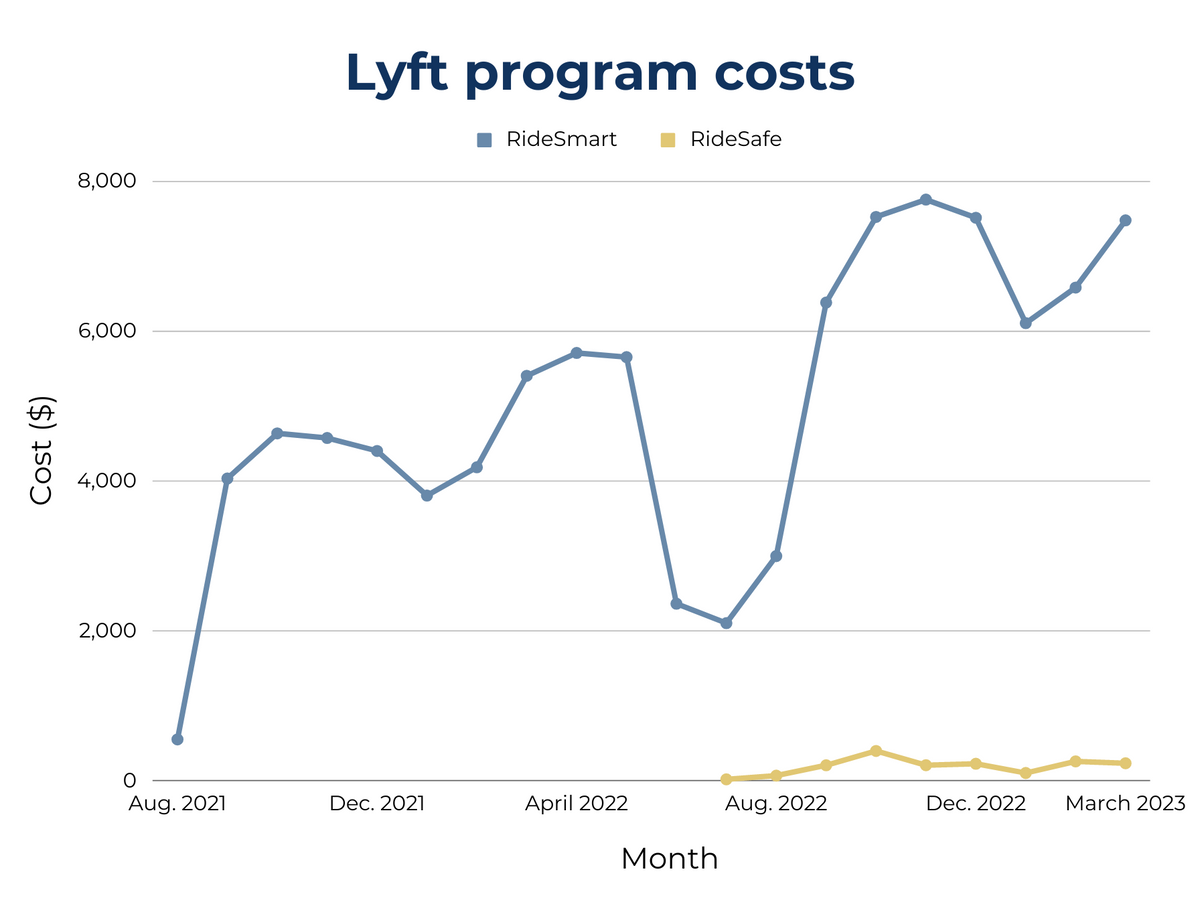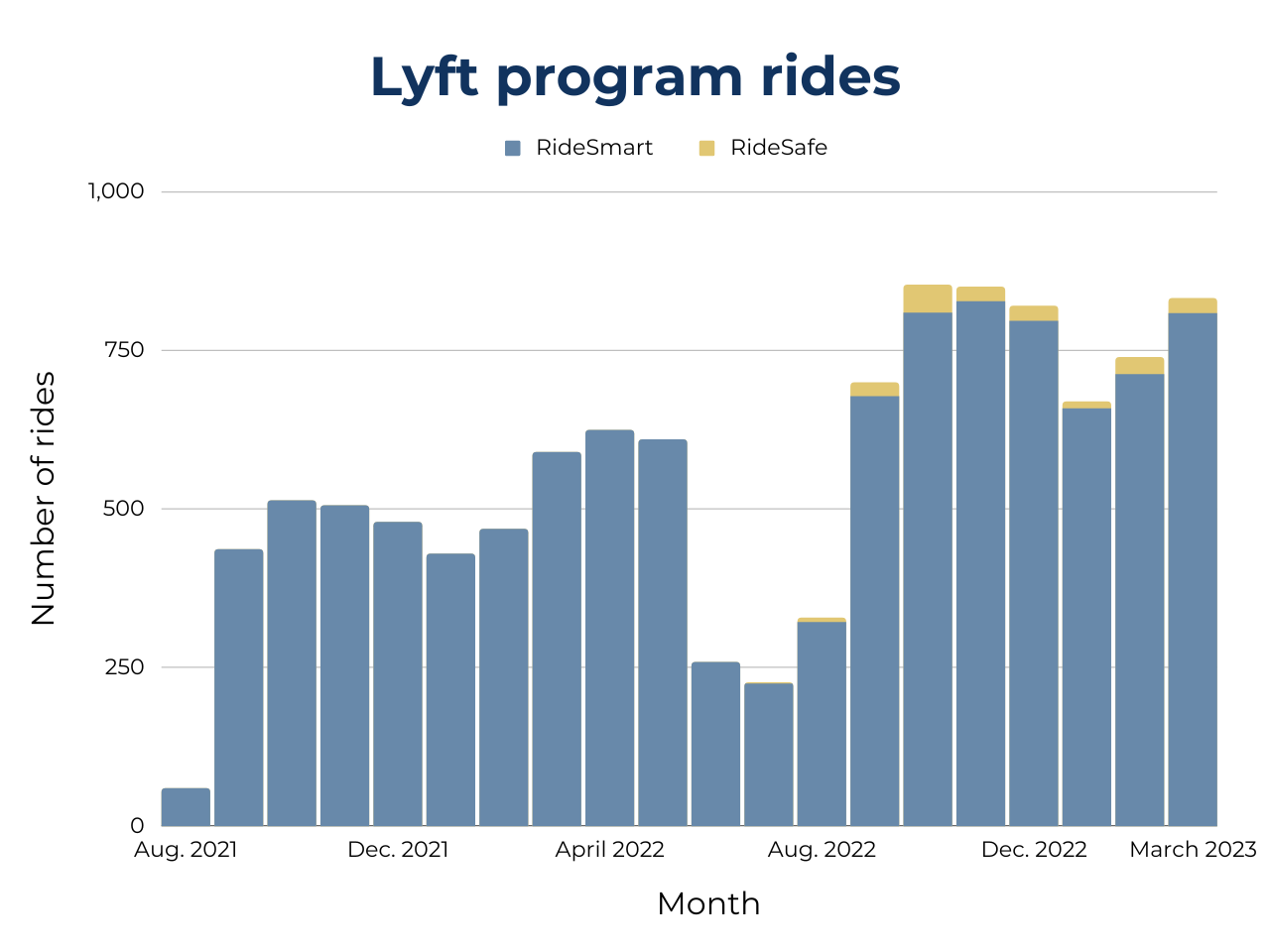ASA evaluates, resumes Lyft program

The Augustana Student Association restarted its Lyft program on Oct. 1 after ASA enacted a nearly month-long “maintenance period” to review the program’s funding.
ASA has funded the Lyft program since fall 2020 to help students without vehicles travel for groceries, doctor visits and internships. The maintenance period began on Sept. 6.
In comparison to all other ASA-funded programs, the Lyft program receives the largest percentage of ASA’s budget. Approximately $69,000, or 23% of the group’s budget, is allocated to the two Lyft programs: Ride Smart and Ride Safe.
The Ride Smart program is meant for students traveling during the day to appointments, internships and to get groceries while Ride Safe is for a population of students who may stay out downtown on the weekends or in other well-trafficked areas.
“As I don’t drive, it is very difficult to go from place to place, even if it’s for grocery shopping or some school events,” Matt Thapa, a sophomore international student, said. “Without the Lyft program, we had to spend $25 on Lyft [on top of] paying for groceries, which can be less than $25.”
ASA President Lauren Teller said this fall, ASA had to re-evaluate how much it was spending on the program.
“We weren’t aware where the financial boundaries stood for the program. As the awareness of the program has increased among students, it’s gotten to the point where our budget doesn’t have room to fund just anybody anymore,” Teller said.
Students must now fill out an application and be accepted into the program to ensure those who are most in need of access to transportation receive it.
Previously, the number of Lyft trips were unlimited, all of which were free of charge. Now, a Ride Smart student has access to six trips a month at $10 off each trip. A Ride Safe student can access the same discounted price for four trips a month.
The application for the program opened Sept. 25 through Sept. 29 on Viking Central. Augustana students who do not own a car were given priority, as there are now a limited number of spots available.
ASA Vice President Henry Sule said 123 rides are available for those accepted into Ride Smart. ASA has yet to review and finalize a number of rides for Ride Safe.

The Lyft program also aids Augustana’s international student populace, who may have less access to personal automotive transportation. Heather Reed, co-director of the International Programs Office, said Lyft is often the best solution to a transportation problem.
“For international students, [the Lyft program] has been an extraordinarily positive experience,” Reed said. “Access to transportation is critical in students being able to live their lives. People need to be able to access basic needs.”
Besides Lyft, the Sioux Area Metro bus system offers another transportation option for students. However, Reed said SAM lacks accessibility when students need it.
“The bus services aren’t that reliable, and it is hard to get to places on time,” Thapa said.
This past summer, SAM put its partnership with Augustana on hold to re-evaluate the program, which previously allowed students to show their school IDs to bus drivers and receive rides free of charge.
Reed said this September has brought a lapse in transportation for students.
“They didn’t know what was happening, and it was stressful,” Reed said.
The Lyft program began in the 2020-2021 academic school year. Data from an ASA J-term task force, which evaluated the program’s costs, showed the necessity of a maintenance period.
“[This past] January, ASA had a transportation task force that was pretty much solely focused on auditing the Lyft program,” Teller said. “A lot of the thinking that was done during that month is now being used to inform our understanding of Lyft.”
The task force found that 259 students used the program during the 2022-2023 school year, a 58.5% increase in use from the previous year.
ASA sponsored 6,628 Lyft rides that year, saving each student approximately $249.98.
Catherine Banson, a sophomore Lyft program user, told ASA she has had good experiences with the program in the past.
“Being an international student, the Lyft program was really beneficial to me during my first year here at Augustana in helping ease the cost expenditure on an already tight budget,” Banson said.
The Lyft program has also helped students in times of stress by providing access to mobility.
“Without the Lyft program, me and my other friends are on campus 90% of the time, which is difficult because it feels like you are stuck somewhere,” Thapa said. “Especially during summer, when…less people are on campus, it was very depressing to just stay on campus. The Lyft program has helped me to get around and be with people, even improving my mental health.”
ASA currently doesn’t plan to have another maintenance period and anticipates conducting another audit of the program in January 2024.



